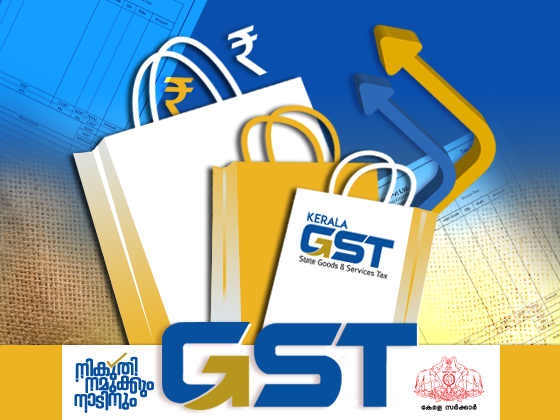
Kerala has radically reorganized the G S T department to reform the state's tax administration system in accordance with the introduction of Goods and Services Tax (GST) implemented in the country since 2017. This is a vital step in the tax administration of Kerala. Kerala is the first State in the country that has completely restructured the GST department after the Goods and Service Tax Act came into force. The department has been restructured into three divisions: Tax Payer Services, Audit, Intelligence and Enforcement. The primary objective of the revamp is to fully implement the GST system by radically changing the operations of the tax department during the VAT/Sales Tax period. The other goals of the restructuring is also includes efficient service to the taxpayers, streamline tax collection, prevent tax leakages, acquire skills and professionalism through continuous training, and improve the department's functioning through the use of advanced technology.
Audit section will become the most important tax assessment mechanism, which was not part of the department's intelligence operations and existing tax laws as part of the restructuring.. Audit is one of the most important assessment method in modern tax administration. At present audit was not included in the inspection methods of the state tax department. When the audit is a part of the tax system, tax assessment can be done more scientifically and efficiently. Henceforth, the audit department will check the correct tax liability of traders. While the Taxpayer Services Division will handle monitoring of return filing, scrutiny of monthly returns, refunds, and adjudication of show-cause notices. The intelligence and enforcement wing is tasked with detecting and preventing tax evasion. After the revamp, the entire examination and adjudication of GST registration applications submitted by traders will be carried out from the Centralised Registration Unit. This is expected to facilitate timely and speedy grievance-free disposal of registration applications. Earlier, registration applications were processed by the GST offices of the respective places.
The state economy is recovering from the headwinds created by the pandemic. As a result of proper interventions, there was an increase of ₹ 13,000 crores in Kerala's income in the last financial year. The state aims to carry forward this excellent work with more vigilance. Revamping the state GST department will help the collection of tax revenue corresponding to total goods and services transactions in Kerala without leakage. With the elimination of check posts, modern systems including CCTV cameras have been set up to prevent possible tax evasion through the borders. Fundamental changes have been made at the official level as part of intensifying the activities of the department. 404 new posts have been created in the department in this regard. The posts of 24 Deputy Commissioners and 380 Assistant State Tax Officers have been newly created. 31 Taxpayer Divisions, 94 Taxpayer Units, 7 Audit Zones, 41 Intelligence Units and 47 Enforcement Units came in force.
With the implementation of the GST Act in July 2017, a new tax system was introduced in the country. All the indirect taxes levied on goods and services were brought under one umbrella and the power of taxation was taken away from the states. The GST Council, in which the Union Goverment has a decisive majority, is the decision-making body on goods and services tax. Today, states have only the power to levy taxes on a few commodities, such as petroleum products and alcohol. According to the 15th Finance Commission report, 62.7% of the country's total revenue goes to the Centre. In terms of expenditure, 62.45% is the responsibility of the states. However, exactly half of the GST revenue goes to the union govt. Kerala's revenue entitlement has fallen by around ₹ 40,000 crores less this year due to a reduction in tax allocation, reduction in revenue deficit grant, abolition of GST loss relief, reduction in borrowing limit and introduction of new norms in borrowing. The restructuring of GST will help to increase the tax revenue of the state and streamline the tax administration system.
GOverment Order (G.O.(M.S) No.106/2022/Taxes dated 29.12.2022 )
Last updated on : 2023-01-19 18:03:12
Article No: 910